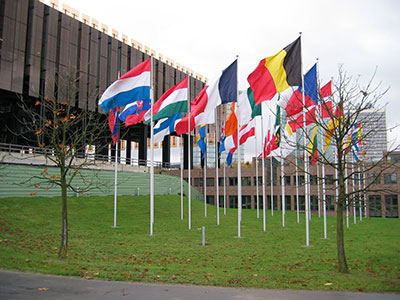EU’s top court bans humilating gay asylum tests

The European Court of Justice in Luxembourg (Pic: Cédric Puisney)
European Union states have been ordered to stop degrading tests to verify the sexual orientation of lesbian and gay asylum seekers.
On Tuesday, the European Court of Justice ruled on a case involving three men, including a Ugandan, who were refused refugee status by the Dutch authorities because the men had not been able to “prove” their sexual orientation.
Some EU governments have been criticised by human rights groups for making it extraordinarily difficult for asylum seekers to convince officials that they are gay or lesbian.
A 2013 report revealed that a number of gay and lesbian asylum seekers in the UK had to present “photographic and video evidence of highly personal sexual activity to caseworkers, presenting officers and the judiciary.”
In June, a Nigerian woman claimed that she was forced to give UK immigration authorities a sex video in order to prove that she is in fact a lesbian.
As recently as 2010, the Czech Republic was accused of using humiliating tests in which gay asylum seekers are shown heterosexual pornography and then have the responses on their genitals measured.
The EU court said that while countries are entitled to question lesbian and gay refugees about their sexual orientation, the proceedings must be in line with EU law and must respect their right to human dignity and their right to respect for privacy and family life.
It ruled that the inability of applicants to answer questions using “stereotyped notions associated with homosexuals” is not sufficient reason for concluding that they lack credibility. It also said that questions concerning details of their sexual practices are an infringement of their rights.
The court further banned applicants submitting themselves, even if willingly, to possible ‘tests’ in order to demonstrate their homosexuality, including the use of videos of their intimate acts.
“The effect of authorising or allowing such types of evidence would be to incite other applicants to offer the same and would lead, de facto, to requiring applicants to provide such evidence,” said the court.
The court also ruled that a person not declaring their homosexuality at the outset, due to a reticence in revealing intimate aspects of their lives, is not a basis to refuse their application.
In November last year, the same court ruled that gay people who face the real threat of being jailed because of their sexual orientation have grounds to request asylum in the EU.
Leave a Reply